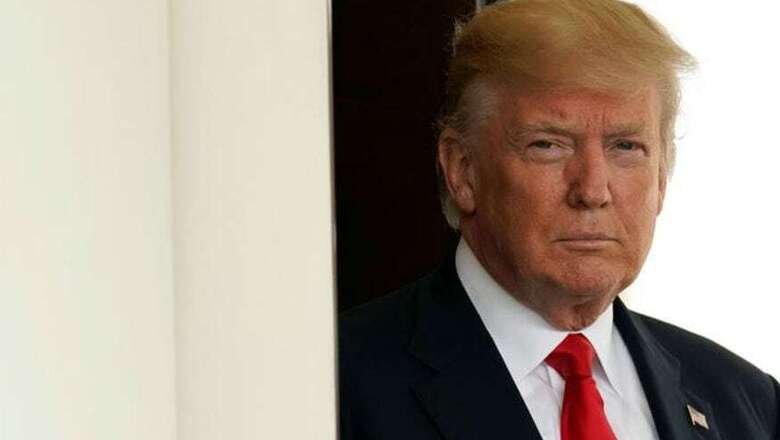
views
Bologna, Italy: Rifts between the United States and its leading industrial allies over climate change deepened on Monday when Washington refused to subscribe fully to a Group of Seven statement on the environment.
The U.S. said it would not sign up to a pledge by Italy, Canada, Japan, France, Britain and Germany which called the 2015 Paris agreement on climate change "irreversible" and key for the "security and prosperity of our planet".
As a consequence, Washington formally refused to back multilateral development banks -- bodies designed to finance poorer nations and help them reduce their pollution emissions.
U.S. President Donald Trump pulled out of the Paris deal earlier this month and the U.S. position was laid out in a brief note at the bottom of a general communique following a meeting of G7 environment ministers in this northern Italian city.
"The U.S. is now left as a footnote to climate action and that's very sad," said Canadian Environment Minister Catherine McKenna. "Everyone expressed their deep disappointment with the U.S. decision," she said.
The head of the U.S. Environmental Protection Agency, Scott Pruitt, only attended the first day of the meeting on Sunday, held as an early summer heatwave settled over Italy, before flying back to Washington.
In a statement on Monday, he defended the U.S. position.
"We are resetting the dialogue to say Paris is not the only way forward to making progress," he wrote.
Environment ministers and officials met in a luxury hotel, sitting around a table covered in lush grass, to discuss issues ranging from climate change to sustainable development and litter at sea.
Trump, who has in the past dismissed climate change as a hoax, says the Paris accord would undermine the U.S. economy, cost jobs, and put his country at a disadvantage to its competitors.
McKenna said the Paris agreement could create economic opportunities worth "in the tens of trillions of dollars".
The 2015 accord, backed by nearly 200 countries, aims to limit global warming to 2 degrees or less by 2100, mainly through pledges to cut carbon dioxide and emissions.
When announcing the U.S. was pulling out of the Paris accord Trump said his administration would begin negotiations either to re-enter the deal or set up a new agreement on "terms that are fair to the United States".
Under the pact, the United States - the world's second biggest carbon emitter behind China - had committed to reduce its emissions by 26-28 percent from 2005 levels by 2025.
Italian Environment Minister Gian Luca Galletti said a dialogue had been kept open with the U.S. to see if there were the conditions for Washington to reenter the Paris accord.
"But one thing is clear, the accord is irreversible non- negotiable and the only instrument for fighting climate change," he told reporters.



















Comments
0 comment